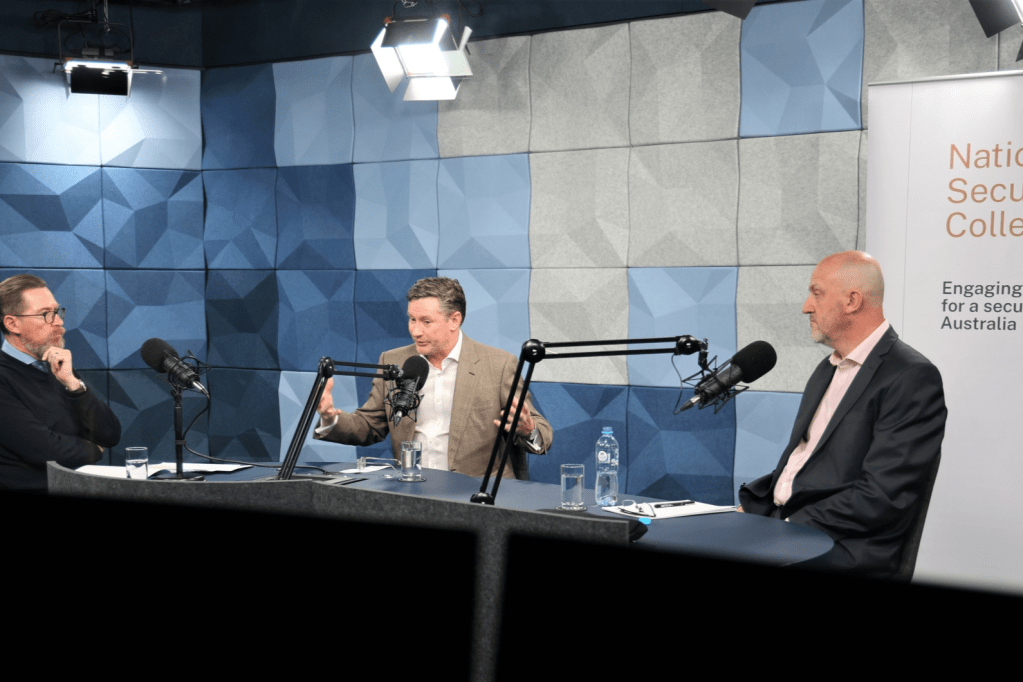
The head of Australia’s intelligence community has lit a fire under the feet of the Australian Public Service’s persistent difficulty and slowness around the pace of new technology adoption and procurement, warning that spy agencies and government now risk potential failure unless chronic risk aversion for disruptive new tools is tempered.
Speaking at a Centre for Strategic and International Studies event in Washington on Monday, Office of National Intelligence head Andrew Shearer cautioned that Australia’s and the Five Eyes’ adversaries are now seeking to use technology, including artificial intelligence, to extract a competitive advantage.
In a carefully nuanced, but direct and firm assessment, Shearer differentiated between evolving foreign adversary capability and the sheer slowness and insularity of bureaucracy when it comes to getting new capabilities ready to put on the paddock.
“When I think about the strategic contest … it’s got a military component, it’s got a diplomatic component, it’s got an economic component, it’s got [an intelligence] component,” Shearer said.
“The centre of gravity in the contest is technology and the struggle for control of the sort of commanding heights of critical and emerging technologies. That’s how a range of leaders, including China’s leadership, see this.”
Shearer noted that after decades of military technology filtering down to consumer and business transformations — telecoms, the internet, secure networks and information sharing — some “humility” was needed in that government endeavours no longer necessarily led the strategic charge.
“I think that means a few pretty profound things for government, right? It means we need to inject an element of humility into our thinking about this. That we’re not the font of all knowledge. I think it makes partnerships, especially with the private sector, not just sort of important, but absolutely critical,” Shearer said.
“I think … we tend to have systems that are frankly, pretty risk averse, right? We have robust procurement rules, and that’s important because the money we’re spending is taxpayer’s money. But if we don’t reassess our risk appetite around technology, and uptake of technology, I think we’re going to fail,” Shearer said.
“And so that takes you … to an uncomfortable world for many of us as officials, but I think the reality unless we’re prepared to, you know, as they say, to fail to succeed, you know, to recognise that not all of these investments are going to work, that we shouldn’t build sort of massive kind of, you know, tomorrow’s legacy system.”
Artificial intelligence was called out as one big mover, but so was work on a Fives Eyes Top Secret cloud that was broadly interoperable within the network. That project has been frustrated locally by Microsoft previously walking away from the attempted procurement by ONI.
That ruction was in June 2022, but since then, Microsoft has gone all-in on an investment in OpenAI, the company behind ChatGPT and more importantly the GPT4, the white-labelled multimodal large language model behind Microsoft Copilot.
In a curious feat of platform diplomacy (as opposed to platform regulation) prime minister Anthony Albanese announced a trial of Microsoft Copilot across the APS just a few weeks ago.
The positioning of Microsoft as a Five Eyes sovereign secure cloud platform comes at the end of a long and difficult road for the US Department of Defence that went to a vendor beauty pageant that devolved into reality-TV-level discussions during the Trump presidency.
There are several ways to describe what happened, but it was messy. Microsoft, Google and Amazon all lined up on the catwalk. Staff at Google essentially rejected a proposal to underpin the US military. Trump subsequently rejected Amazon’s Cloud, based on antipathy towards CEO Jeff Bezos. Microsoft then filled the vacuum and revalidated the US government’s dependence on its products.
This is the hand that Shearer has been dealt and must now play. So too Rachel Noble at the Australian Signals Directorate and Mike Burgess at the Australian Security Intelligence Organisation.
It is less about merit and more about reality. Shearer is refreshingly candid about this and the reality it brings.
Australia’s adversaries, the adversaries of the Five Eyes network are not losing sleep about an auditor’s report, or a parliamentary committee fed lines by lobbyists.
“I think that’s the reality, unless we’re prepared to, you know, as they say, to fail to succeed, you know, to recognize that not all of these investments are going to work. That we shouldn’t build [some] sort of massive kind of, you know, tomorrow’s legacy system. And often … legacy systems, frankly, by the time they’re delivered, just because, you know, that’s how we roll. We need to kind of get over that stuff pretty quickly,” Shearer said.
“And I think that’s going to be challenging for our wider political and financial oversight systems, but that’s a conversation we have to have.”
Pull back the lens a bit and consider where this leaves the Australian Public Service Commission’s explicit rejection of a distinct technologist classification and career path within the APS.
If Australia’s intelligence community can flex to make diversity work for its cause in the interests of national security, why can’t the stewards of the APS?
“And the one thing that does my head in most is the head of our community is finding out that agency X has been toiling away to develop a widget, you know, [at] great cost. And over here, agency Y, toiling away to develop a widget that’s sort of 97% the same but that has a very special unique … requirement,” Shearer said.
“And often in the past, they haven’t even known about that. So one of the things we’ve put in place as part of our new National Intelligence Committee strategy is the set of principles that mandate sharing new technology,” Shearer said.
Change. It’s where you make it.
READ MORE:

